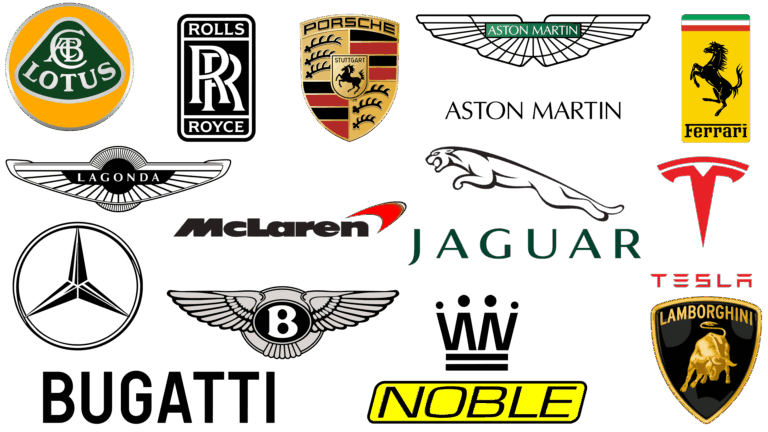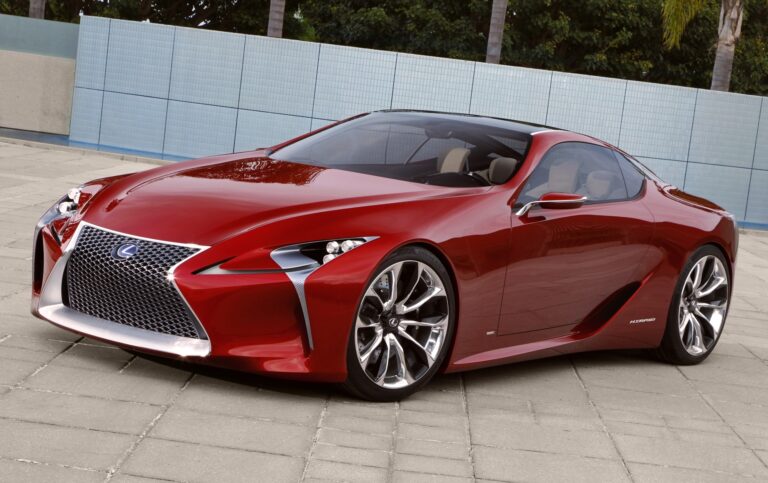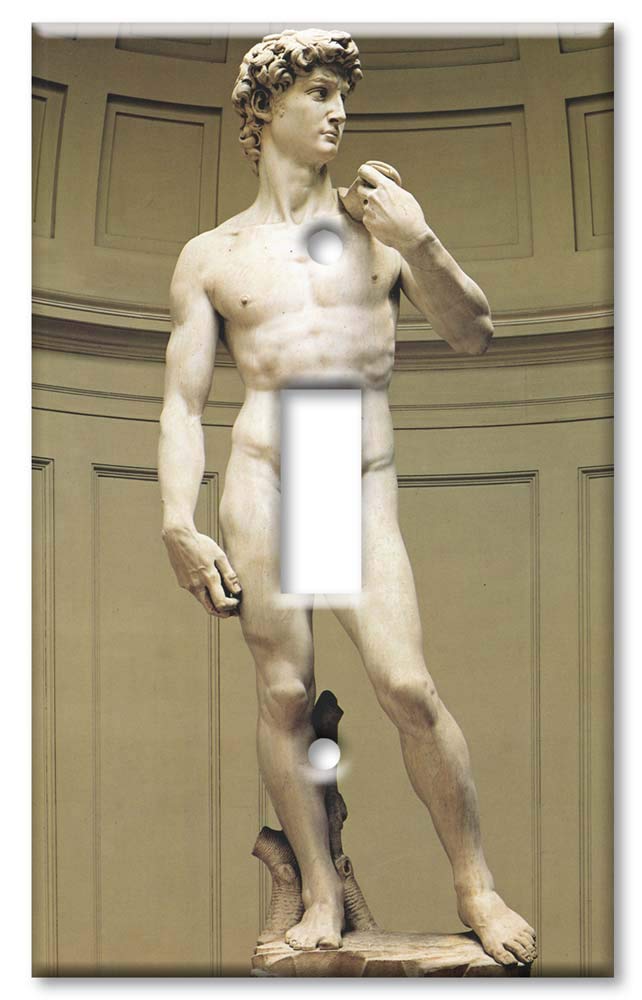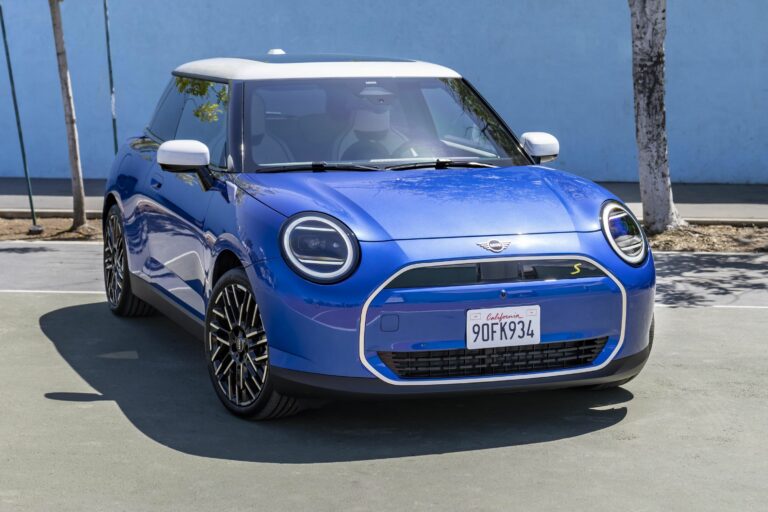Japanese Luxury Car Brands: A Legacy of Precision, Reliability, and Refined Elegance
Japanese Luxury Car Brands: A Legacy of Precision, Reliability, and Refined Elegance cars.truckstrend.com
In the highly competitive global automotive landscape, where names like Mercedes-Benz, BMW, and Audi have long reigned supreme, a unique force emerged from the East, quietly yet powerfully redefining what luxury truly means. Japanese luxury car brands, spearheaded by Lexus, Acura, and Infiniti, carved out a distinctive niche by prioritizing unwavering reliability, meticulous craftsmanship, advanced technology, and an unparalleled commitment to customer satisfaction. Far from being mere imitators, these brands introduced a fresh perspective on premium motoring, offering an understated elegance and an exceptional value proposition that resonated deeply with discerning buyers worldwide. This comprehensive guide delves into the essence of Japanese luxury, exploring its origins, core tenets, key players, and what the future holds for these automotive titans.
The Genesis of Japanese Luxury: A Historical Overview
Japanese Luxury Car Brands: A Legacy of Precision, Reliability, and Refined Elegance
The late 1980s marked a pivotal moment for Japanese automakers. Having successfully established a reputation for producing economical, reliable, and efficient vehicles, they set their sights on a more ambitious goal: challenging the entrenched European and American luxury marques. This wasn’t just about selling more expensive cars; it was about elevating their engineering prowess, design philosophy, and customer experience to an entirely new level.
Toyota initiated this revolution with the secret "F1" project, which culminated in the launch of Lexus in 1989. Its inaugural model, the LS 400, shocked the industry with its whisper-quiet cabin, buttery-smooth V8 engine, impeccable build quality, and a price tag significantly lower than its German rivals. Honda followed suit with Acura in 1986, initially targeting a performance-oriented luxury segment with models like the Legend and Integra. Nissan, not to be left behind, launched Infiniti in 1989, aiming for a more artistic and driver-focused interpretation of luxury.
These brands were not simply rebadged versions of their parent company’s vehicles. They were developed from the ground up with unique platforms, powertrains, and a distinct identity. Their mission was clear: to offer a superior ownership experience that combined the legendary reliability of Japanese engineering with the opulence and refinement expected of a luxury vehicle, often at a more accessible price point. This strategic move fundamentally altered the luxury car market, forcing established players to innovate and compete more aggressively.
Key Pillars of Japanese Luxury Car Brands
The success of Japanese luxury brands is built upon a foundation of core principles that differentiate them from their competitors:
- Unrivaled Reliability & Durability: Perhaps the most enduring hallmark of Japanese luxury cars is their legendary dependability. Decades of meticulous engineering, rigorous testing, and a "kaizen" (continuous improvement) philosophy have resulted in vehicles renowned for their longevity and low incidence of mechanical issues. This translates into peace of mind and lower long-term ownership costs for consumers.
- Technological Innovation with a Purpose: While European brands often showcase cutting-edge, sometimes experimental, technology, Japanese luxury brands tend to integrate innovation seamlessly and reliably. From advanced hybrid powertrains (Lexus being a pioneer) to sophisticated safety suites (like Acura’s AcuraWatch and Lexus Safety System+), the technology is designed to enhance comfort, safety, and efficiency without overwhelming the driver.
- Refined Driving Experience: The emphasis here is on smoothness, quietness, and effortless performance. Japanese luxury cars typically offer serene cabins, compliant suspensions that glide over road imperfections, and powertrain combinations that deliver power smoothly and efficiently. The focus is on creating a relaxed and comfortable journey, whether on a daily commute or a long road trip.
- Understated Elegance & Meticulous Craftsmanship: Unlike some luxury vehicles that rely on overt displays of wealth, Japanese luxury cars often embody an understated elegance. Their designs are typically clean, sophisticated, and timeless. Inside, craftsmanship shines through in the precise panel gaps, high-quality materials (often including genuine wood, leather, and aluminum), and ergonomic layouts that prioritize driver and passenger comfort. Attention to detail is paramount, from the feel of the buttons to the quality of the stitching.
- Exceptional Customer Service: Lexus, in particular, set a new benchmark for customer service, drawing inspiration from the Japanese concept of "omotenashi" (wholehearted hospitality). This extends beyond the dealership, encompassing a proactive approach to owner satisfaction, streamlined service experiences, and a genuine desire to anticipate and meet customer needs. Acura and Infiniti also strive to provide a premium ownership experience.
- Compelling Value Proposition: Historically, Japanese luxury brands have offered a compelling blend of features, performance, and reliability at a more competitive price point than their European counterparts. This value extends to lower depreciation rates and generally more affordable maintenance, making them an attractive long-term investment.
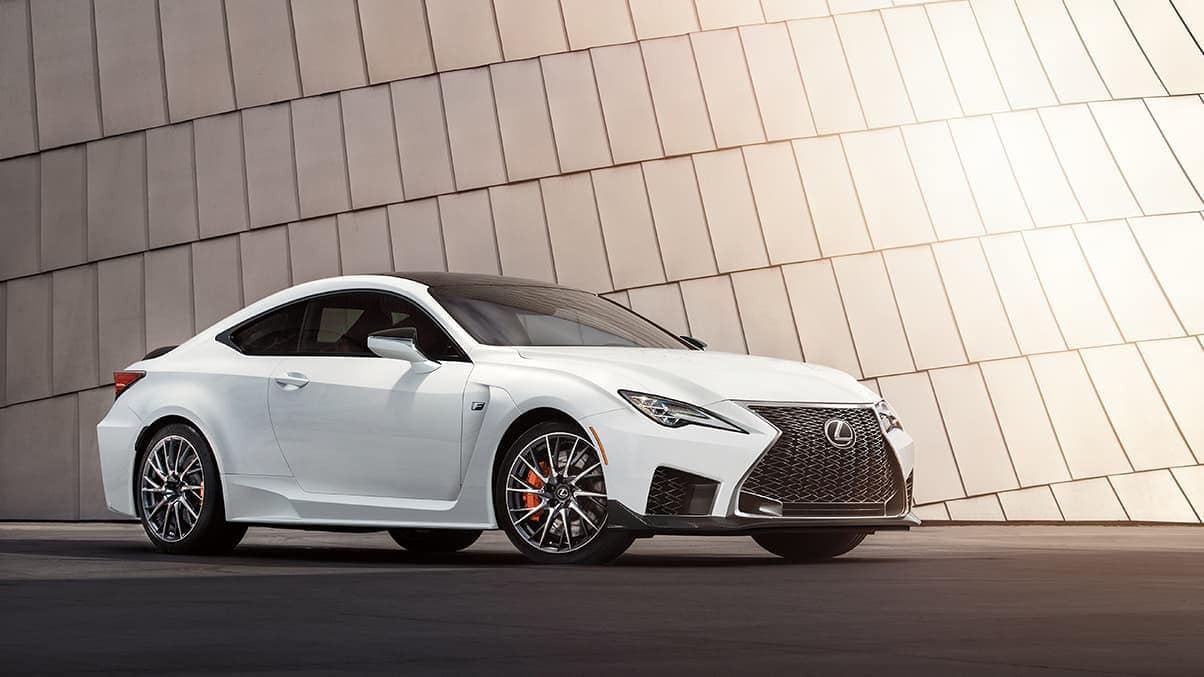

The Big Three: A Deep Dive into Lexus, Acura, and Infiniti
While other Japanese manufacturers like Mazda are beginning to push into more premium segments, Lexus, Acura, and Infiniti remain the dedicated luxury divisions, each with its distinct personality.
Lexus (Toyota)
Lexus is arguably the most successful and recognized Japanese luxury brand globally. Born from Toyota’s desire to create the "best car in the world," it quickly established a reputation for unparalleled reliability, exceptional comfort, and a serene driving experience.
- Key Characteristics: Legendary reliability, whisper-quiet cabins, plush ride quality, strong emphasis on customer service, and a comprehensive lineup of efficient hybrid vehicles.
- Signature Models: The LS sedan (the original flagship), the ES sedan (a popular mid-size luxury choice), and the RX SUV (a best-seller that defined the luxury crossover segment). The LC coupe showcases a bolder, more emotional design direction.
- Target Audience: Buyers who prioritize comfort, reliability, a serene driving experience, and exceptional customer service, often valuing long-term ownership and peace of mind.
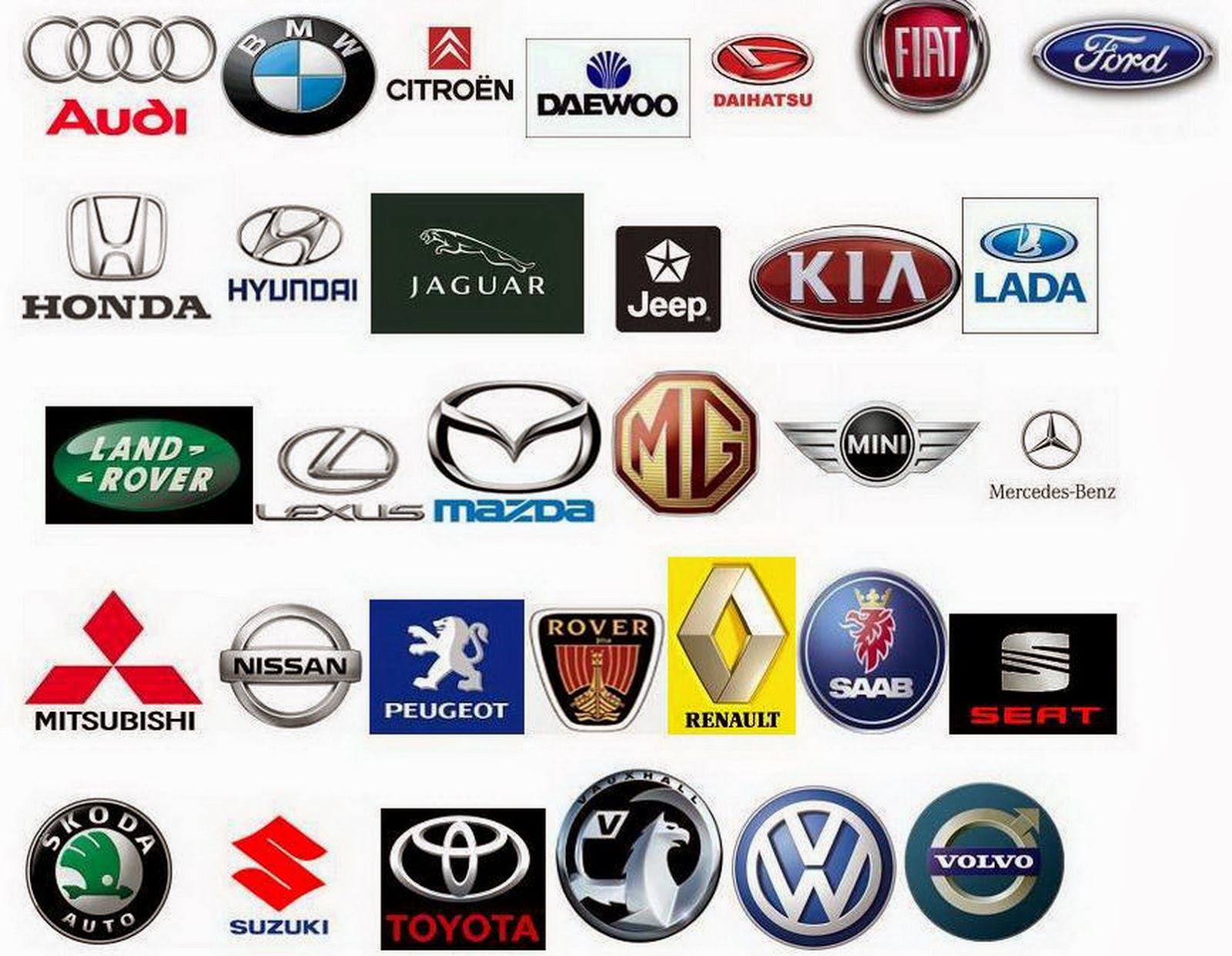
Acura (Honda)
Acura was Honda’s pioneering venture into the luxury market, launching before Lexus and Infiniti. It has consistently aimed for a sportier, more performance-oriented luxury experience, leveraging Honda’s engineering prowess.
- Key Characteristics: Precision-crafted performance, advanced technology like Super Handling All-Wheel Drive (SH-AWD), driver engagement, and a focus on spirited driving dynamics.
- Signature Models: The TLX sedan (offering a balance of luxury and sportiness), the MDX SUV (a popular three-row luxury SUV with strong performance), and the NSX (a high-performance hybrid supercar that serves as a technological halo car).
- Target Audience: Buyers who appreciate driving dynamics, advanced technology, and a more athletic interpretation of luxury, often younger or those seeking a more engaging experience.
Infiniti (Nissan)
Infiniti, Nissan’s luxury division, has always distinguished itself with an "Art and Science" design philosophy, resulting in bold, expressive styling and a focus on dynamic performance.
- Key Characteristics: Distinctive and often aggressive styling, strong performance from V6 engines, a driver-focused interior, and a unique blend of luxury and sportiness.
- Signature Models: The Q50 sedan (a compact executive car with powerful engine options), the QX60 (a stylish and comfortable three-row SUV), and the full-size QX80 (a commanding and luxurious SUV).
- Target Audience: Buyers who seek a luxury vehicle that stands out visually, offers strong performance, and embodies a more expressive design language.
Choosing Your Japanese Luxury Vehicle: Practical Advice & Considerations
Selecting the right luxury car is a significant decision. Here’s practical advice for potential buyers considering a Japanese luxury brand:
- Identify Your Priorities: Are you looking for ultimate reliability and comfort (Lexus)? Sporty performance and advanced AWD (Acura)? Or bold styling and dynamic driving (Infiniti)? Understanding your core needs will narrow your search.
- Test Drive Extensively: Don’t just take a quick spin around the block. Drive different models and trim levels. Pay attention to ride comfort, interior quietness, acceleration, handling, and the intuitiveness of the infotainment system.
- Research Models and Trims: Each brand offers a range of models with various trim levels, options, and powertrains. Understand the differences in features, technology, and pricing to ensure you’re getting what you need.
- Consider Ownership Costs: While Japanese luxury cars often have lower maintenance costs than some European rivals, factor in fuel efficiency, insurance premiums, and potential depreciation. Generally, Lexus models hold their value exceptionally well.
- New vs. Certified Pre-Owned (CPO): A CPO vehicle can offer significant savings while still providing a factory-backed warranty and rigorous inspection, making it a smart alternative to buying new.
- Evaluate the Dealership Experience: The luxury experience extends to sales and service. Visit local dealerships, assess their customer service, and inquire about their service departments and amenities.
Potential Challenges:
- Brand Perception: While greatly improved, some consumers still associate luxury more readily with traditional European marques.
- Less Aggressive Performance: While capable, some Japanese luxury cars, particularly Lexus, historically leaned more towards comfort than raw performance, though this is changing with sportier F-Sport and Type S variants.
- Conservative Design (for some): While many appreciate the understated elegance, some buyers might find the design language of certain models less flamboyant than European or American rivals.
The Future of Japanese Luxury Cars
The landscape of luxury automotive is rapidly evolving, and Japanese brands are at the forefront of these changes:
- Electrification: Expect a significant acceleration in hybrid, plug-in hybrid, and battery electric vehicle (BEV) offerings across all brands. Lexus, with its long history of hybrids, is well-positioned, while Acura and Infiniti are also heavily investing in EV platforms.
- Autonomous Driving: Advanced driver-assistance systems (ADAS) will continue to evolve towards higher levels of autonomous capability, enhancing safety and convenience.
- Sustainability and Materials: There will be an increased focus on sustainable manufacturing processes and the use of eco-friendly materials in interiors, without compromising luxury feel.
- Personalized Experiences: Brands will increasingly leverage technology to offer highly personalized ownership experiences, from custom vehicle configurations to tailored digital services.
- Evolving Design: Expect bolder and more expressive design languages as these brands seek to capture new demographics and remain competitive in a visually driven market.
Concluding Summary
Japanese luxury car brands have undeniably carved out a formidable presence in the global automotive industry. By meticulously blending precision engineering, unwavering reliability, refined comfort, cutting-edge technology, and an exceptional commitment to customer satisfaction, Lexus, Acura, and Infiniti have presented a compelling alternative to established luxury norms. They offer a unique value proposition that prioritizes long-term ownership satisfaction and a serene, sophisticated driving experience. As the industry moves towards an electrified and increasingly connected future, these brands are poised to continue their legacy of innovation and excellence, ensuring their enduring relevance in the world of premium automobiles.
Price Table: Popular Japanese Luxury Car Models (Approximate Starting MSRP)
| Brand | Model (Example) | Category | Starting MSRP (Approx. USD) | Key Feature |
|---|---|---|---|---|
| Lexus | ES 350 | Mid-size Sedan | $43,190 | Serene ride, exceptional reliability |
| Lexus | RX 350 | Mid-size SUV | $49,950 | Popular, comfortable, family-friendly |
| Lexus | NX 350 | Compact SUV | $43,650 | Agile, modern tech, hybrid options |
| Acura | TLX | Mid-size Sedan | $45,000 | Sporty handling, available SH-AWD |
| Acura | MDX | Mid-size SUV | $52,000 | Spacious 3-row, advanced safety, performance |
| Acura | Integra | Compact Sedan | $31,500 | Engaging drive, premium entry-point |
| Infiniti | Q50 | Compact Sedan | $44,200 | Dynamic styling, powerful twin-turbo V6 |
| Infiniti | QX60 | Mid-size SUV | $51,100 | Premium interior, comfortable family hauler |
| Infiniti | QX80 | Full-size SUV | $74,150 | Bold presence, luxurious cabin, towing capability |
Disclaimer: Prices are approximate starting Manufacturer’s Suggested Retail Prices (MSRPs) for base models in the U.S. market at the time of writing (late 2023/early 2024 models). They do not include destination charges, taxes, options, or dealer markups, and are subject to change based on trim levels, packages, regional differences, and market conditions.
Frequently Asked Questions (FAQ) about Japanese Luxury Car Brands
Q1: What are the main Japanese luxury car brands?
A1: The three primary and dedicated Japanese luxury car brands are Lexus (owned by Toyota), Acura (owned by Honda), and Infiniti (owned by Nissan).
Q2: Why should I choose a Japanese luxury car over a German one (e.g., BMW, Mercedes-Benz)?
A2: Japanese luxury cars are often chosen for their superior reliability, lower long-term ownership costs, exceptional customer service, and a focus on refined comfort and quietness. While German brands often emphasize raw performance and cutting-edge (sometimes complex) technology, Japanese brands offer a more understated elegance and a strong value proposition.
Q3: Are Japanese luxury cars expensive to maintain?
A3: Generally, no. Compared to many European luxury brands, Japanese luxury cars, especially Lexus, are known for their lower maintenance costs and fewer unscheduled repairs due thanks to their high reliability and readily available parts.
Q4: Do Japanese luxury cars hold their value well?
A4: Yes, Japanese luxury cars, particularly Lexus models, typically have excellent resale values. Their reputation for reliability and durability makes them highly desirable in the used car market, leading to slower depreciation.
Q5: Are there any new Japanese luxury car brands emerging?
A5: While no new standalone luxury brands have emerged in the same vein as Lexus, Acura, and Infiniti recently, parent companies like Toyota (with the reintroduction of the Crown as a more premium offering) and Mazda (with its push towards a more upscale market segment) are indicating a broader move towards premiumization within their existing brands.
Q6: Are Japanese luxury cars good for performance driving?
A6: While traditionally known for comfort, all three brands now offer performance-oriented variants (e.g., Lexus F-Sport, Acura Type S, Infiniti Red Sport) that deliver exciting driving dynamics. Acura, in particular, has a strong heritage in performance luxury.


